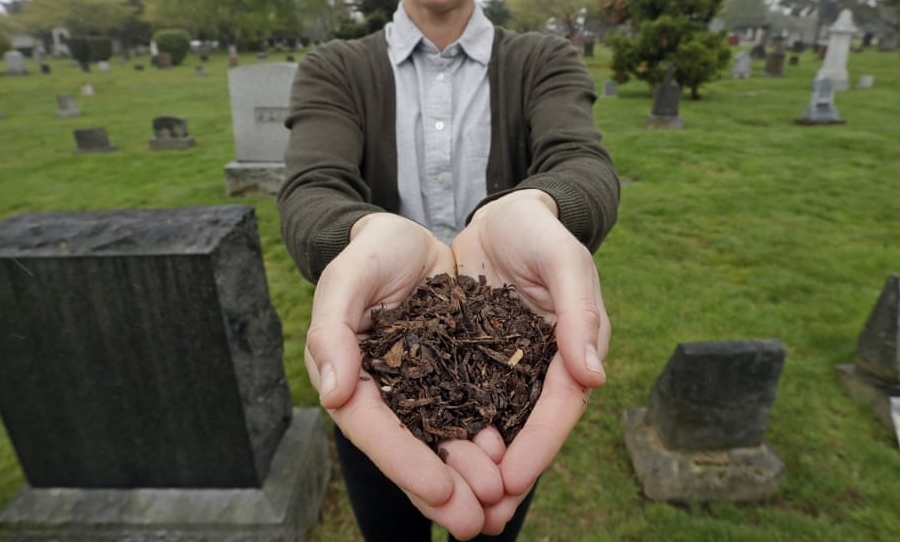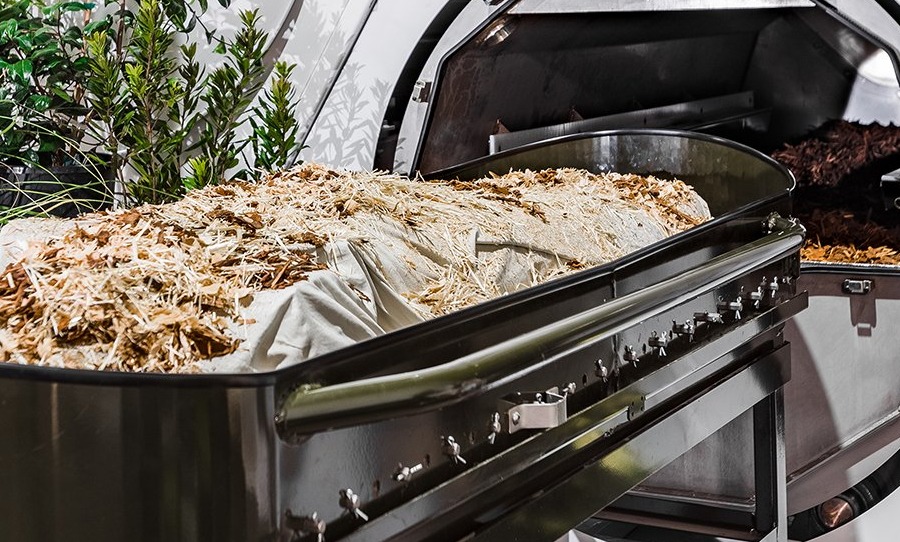A whole new meaning to ‘Granny Smith apple’? The US state of Oregon has passed a bill legalising human composting.
Last Tuesday, the state’s governor, Kate Brown, signed House Bill 2574 – legalising human composting in Oregon.
According to the document, the bill “clarifies permissibility of disposition of human bodies by alternative authorized processes including alkaline hydrolysis and natural organic reduction.”

In other words, it aims to introduce more environmentally friendly alternatives to burials, with a specific focus on alkaline hydrolysis and natural organic reduction.
Officially, the law will be made active from July 1, 2022, onwards.
With the signing of the bill, Oregon becomes the third US state to legalise the practice. The first two were Washington state and Colorado.
While Brown signed the document to bring it into effect, it was actually created by Democrat Representative (Southern Jackson County), Pam Marsh and supported by Representative Brian Clem.
“This is a hard issue for people to think about; it’s not a decision that any of us get to avoid,” Marsh explained when speaking to Motherboard of VICE.
“It has an appeal, certainly not to all consumers, but to many of us who are really looking for ways to think about how our footprint on the earth continues after life is gone.”
Rep. Pam Marsh says the state plans to have its rules in place for natural organic reduction facilities by 2022.https://t.co/EdjlYTooLy
— Mail Tribune (@mailtribune) June 16, 2021
Exactly how does all this work? It’s fairly simple.
Alkaline hydrolysis (sometimes known as aqua cremation) uses a liquid-based chemical solution to “reduce a body to components of liquid and bone”.
Specifically, the chemical is comprised of “95% water and 5% potassium hydroxide or sodium hydroxide”.
Once a body undergoes this form of decomposition, the remaining bones can be disposed of in a similar fashion to ashes from a traditional cremation. The liquid that this process creates can be poured down the drain.
Natural organic reduction refers to a process where a body is placed into a vessel with other organic material (typically plant-based material such as straw).
It is “then heated and turned repeatedly for several weeks” until the body has decomposed into the soil.
Afterwards, the soil can be given to the family in place of ashes or used for gardening.
Not that twitter’s a good way of recording funeral wishes, but i think being composted and then having the soil be used for flowers or other plants seems like the perfect way to honor my body. https://t.co/NM5S004Uow
— rabble (@rabble) June 18, 2021
With the bill having been passed, there are fresh hopes that America’s burial industry will reduce the negative impact it has on the environment.
According to Business Insider (who obtained their information from the Berkeley Planning Journal), the embalming process has seen “more than 800,000 gallons of formaldehyde … [be] put into the ground along with dead bodies every year” in the US.
Moreover, it is believed that “4 million acres of forest” are cut down to build caskets for traditional burials, and that the fumes emitted from cremations introduce chemicals (“carbon monoxide, fine soot, sulphur dioxide,” etc) into the atmosphere.



